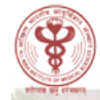How to become an Obstetrician and Gynecologist
Overview, Courses, Exam, Colleges, Pathways, Salary

Overview
Who is Obstetrician and Gynecologist ?
Obstetrics and Gynecology is generally combined into one specialty, both concentrating on female’s reproductive organs’ health. Obstetricians focus on reproductive health during pregnancy while Gynecologists concentrate on reproductive health external of pregnancy.
Obstetrician-gynecologists (OBGYNs) are physicians who provide medical care related to female reproductive system, fertility, sexual health, pregnancy, or childbirth; provide diagnosis, treatment, and prevention diseases in women breast and cervical cancer, and hormonal disorders; and work with concerns around family planning, birth control, menstrual cycle, and menopausal symptoms.
Typical day at work
What does Obstetrician and Gynecologist do?
- Take, record, and maintain patient’s case history including medical history, test reports or scans
- Treat and provide medical care to females during the periods of prenatal, natal, and postnatal
- Prescribe medication or other specialized medical care for disease prevention or treatment
- To diagnose patient’s medical condition, analyse records, reports, scans, test results, or examination
- Discuss with patients treatment procedures and test results
- Check progress and update charts of patient’s condition and modify treatment plans if required
- Counsel patients about diet, activity, hygiene, and disease prevention
- Provide other health professional’s referral to patient
- Supervise nurses and mentor students and assistants
- Provide consultation to other doctors
- Plan and implement prevention and treatment health programs in hospitals or communities
- Draft reports for government and organization on birth, death, and disease statistics, staff evaluations or medical status
- Research on disease prevention and control by developing or testing medications, treatments, or procedures
- Administer and order preventative screenings or tests like Pap tests and mammograms for diagnosis to patients
- Assist patients to handle complications in fibroid tumours, infertility, preterm labour, etc.
- Administer surgical procedures, C-section, help mothers in labour, and deliver babies
- Analyse test results to recognize abnormal patterns
- Suggest and design individualized treatment plan
- Discuss concerns or answer patient’s questions about their health condition.
Abilities and Aptitude needed
What are the skills, abilities & aptitude needed to become Obstetrician and Gynecologist?
OBGYN must be able to listen and communicate actively and attentively to the needs of the patients. They need to ask the right questions to interpret the information. They also regularly interact with other professionals and administrative staff. Thus, having good communication, in written and verbal as well as interpersonal skills is necessary.
They must be sensitive, calm, polite, patient, and empathic to patients’ needs and concerns. They need to make their patients feel comfortable and let them know they care, which requires them to have emotional intelligence.
In order to find a diagnosis based on connecting different symptoms, requires analytical thought, problem-solving, judgement, and decision-making skills.
They must show dedication, eye for detail, determination, persistence to commit to years of intense practice. They also need to have team and time management skills as a patient’s and its unborn child’s life is at risk.
They may work with very sharp tools, thus they need to have manual dexterity as mistakes can have serious consequences. They must have self-discipline, spatial orientation, physical stamina, and physical dexterity as they spend a lot of time on feet.
Salary
Salary for Obstetrician and Gynecologist?
Salary for Obstetricians and Gynecologists in India:
-
Entry-Level Annual Salary: Entry-level Obstetricians and Gynecologists in India can expect an annual salary ranging from INR 6,00,000 to INR 10,00,000. These earnings are typical for those who are starting their careers after completing their postgraduate degree (MD/MS) in Obstetrics and Gynecology.
-
Experienced Annual Salary: Experienced Obstetricians and Gynecologists with several years of practice can earn an annual salary ranging from INR 10,00,000 to INR 20,00,000 or more. Their expertise in managing complex cases, performing surgeries, and providing specialized care contributes to their higher earnings.
-
Private Practice Potential: Obstetricians and Gynecologists who establish successful private practices may have the potential to earn even higher incomes, depending on factors such as patient load, reputation, and location.
-
Location Influence: The geographic location of practice plays a significant role in determining salary. Metropolitan cities and urban areas often offer higher compensation compared to smaller towns or rural settings.
-
Hospital Type: Obstetricians and Gynecologists working in prestigious private hospitals, specialized women's healthcare centers, and corporate hospitals may receive higher salaries compared to those in government-run healthcare institutions.
-
Specializations and Expertise: Obstetricians and Gynecologists who specialize in subspecialties such as high-risk obstetrics, reproductive endocrinology, gynecological oncology, or minimally invasive surgery may command higher salaries due to their advanced skills.
-
Consultation Fees: Many Obstetricians and Gynecologists have the opportunity to earn additional income through consultation fees for private patients.
-
Teaching and Research: Obstetricians who are also involved in teaching in medical colleges or conducting research may have diversified sources of income beyond clinical practice.
-
Public vs. Private Sector: While the private sector often offers higher salaries, Obstetricians working in government hospitals and institutions may benefit from job stability, pension plans, and other government-provided benefits.
Career Benefits:
- Obstetricians and Gynecologists are essential healthcare providers specializing in women's health and reproductive care.
- Beyond monetary compensation, they find immense job satisfaction in helping women through various life stages, from pregnancy and childbirth to reproductive health issues and menopause.
Pathways
How to become an Obstetrician and Gynecologist?
Entrance Exam
Entrance Exam for Obstetrician and Gynecologist ?
Courses
Which course I can pursue?
Best Colleges
Which are the best colleges to attend to become an Obstetrician and Gynecologist?
Industries
Which Industries are open for Obstetrician and Gynecologist?
1. Hospitals and Clinics:
- Obstetricians and Gynecologists are commonly employed in hospitals and clinics, both in the public and private sectors.
- They provide comprehensive women's health services, including prenatal care, childbirth, gynecological exams, and family planning.
2. Maternity Hospitals:
- These specialized facilities focus on maternity care and childbirth. Obstetricians play a pivotal role in managing pregnancies, deliveries, and postnatal care.
3. Medical Colleges and Teaching Institutions:
- Obstetricians and Gynecologists can take up teaching roles in medical colleges and institutions to educate aspiring medical professionals.
- They impart knowledge, guide students through clinical rotations, and contribute to medical research.
4. Research and Medical Studies:
- Obstetricians and Gynecologists can engage in research related to women's health, reproductive medicine, fertility, and various gynecological conditions.
- They contribute to advancements in medical knowledge and treatment options.
5. Reproductive Health Clinics:
- These clinics focus on issues related to fertility, reproductive health, and assisted reproductive technologies (ART).
- Obstetricians may provide consultation and treatment for couples struggling with infertility.
6. Private Practice:
- Many Obstetricians and Gynecologists choose to establish their own private practices, offering a range of women's health services to patients.
7. Government Health Programs:
- Obstetricians are also needed in government-run health programs focusing on maternal and child health.
- They provide essential antenatal care, childbirth services, and family planning guidance.
8. Non-Governmental Organizations (NGOs):
- Obstetricians and Gynecologists can collaborate with NGOs to provide healthcare services to underserved communities.
- They may focus on raising awareness, providing health education, and conducting outreach programs.
9. Pharmaceutical and Medical Device Companies:
- Some Obstetricians and Gynecologists work with pharmaceutical or medical device companies as medical advisors or consultants.
- They may contribute to product development, clinical trials, and medical education initiatives.
10. Telemedicine and Online Consultations:
- The rise of telemedicine has opened avenues for Obstetricians to offer virtual consultations and advice to patients, especially for non-emergency cases.
11. International Health and Medical Tourism:
- Obstetricians and Gynecologists in India may be involved in medical tourism, providing specialized care to international patients seeking treatments like fertility procedures.
12. Public Health Departments:
- Obstetricians and Gynecologists can work in government health departments to contribute to public health initiatives, policy-making, and women's health campaigns.
13. Corporate Health and Wellness Programs:
- Some companies offer health and wellness programs to their employees, and Obstetricians and Gynecologists can provide health talks, screenings, and consultations.
internship
Are there internships available for Obstetrician and Gynecologist?
Internships for Obstetricians and Gynecologists in India:
Duration and Structure:
- Internships for Obstetricians and Gynecologists in India typically last for a period of one year. During this time, medical graduates who have completed their MBBS degree and are pursuing specialization in Obstetrics and Gynecology gain practical experience in various aspects of their field.
Key Responsibilities:
- Interns in Obstetrics and Gynecology get hands-on training in diverse areas such as antenatal care, postnatal care, labor and delivery, gynecological surgeries, family planning services, and more.
- They assist senior doctors and specialists in diagnosing and treating various conditions related to pregnancy, childbirth, and women's reproductive health.
- Interns may participate in procedures such as cesarean sections, vaginal deliveries, hysterectomies, laparoscopic surgeries, and other gynecological interventions under the supervision of experienced physicians.
Learning Opportunities:
- Internships offer exposure to a wide range of cases and patients, enabling interns to develop clinical skills, refine diagnostic abilities, and learn about different treatment approaches.
- Interns observe and sometimes participate in prenatal and postnatal care, attending to pregnant women's needs and monitoring fetal development.
- They learn about contraceptive methods, sexual health education, and counseling women on family planning options.
- Exposure to gynecological clinics provides insights into diagnosing and treating conditions such as menstrual disorders, hormonal imbalances, and reproductive tract infections.
Hospital Settings:
- Internships are typically conducted in hospitals, medical colleges, and healthcare institutions with well-equipped Obstetrics and Gynecology departments.
- Government and private hospitals, as well as specialized women's healthcare centers, provide internship opportunities for aspiring Obstetricians and Gynecologists.
Supervision and Mentorship:
- Interns work closely with senior doctors, experienced obstetricians, and gynecologists who provide guidance, mentorship, and supervision.
- Regular case discussions, rounds, and workshops may be organized to enhance learning and skill development.
Requirements:
- To be eligible for an internship in Obstetrics and Gynecology, candidates should have completed their MBBS degree and be in the process of pursuing postgraduate specialization in Obstetrics and Gynecology (MS or MD).
Career Benefits:
- Internships offer a platform for hands-on learning, skill development, and exposure to various clinical scenarios, which are invaluable for aspiring Obstetricians and Gynecologists.
- Interns can build a strong foundation for their future careers, learn effective patient communication, and understand the nuances of working in a multidisciplinary healthcare team.
Career outlook
What does the future look like for Obstetrician and Gynecologist?
OBGYN can find a full-time job in Government and private hospitals, community health care centres, or clinics. They can even start their own practice or be on-call hospital consultants. They generally alternate between clinic and the hospital, thus, their working hours may be irregular, they may be called in on any hour for delivery or other emergencies. One may also be part of research or educational institutions to teach or collaborate with other interdisciplinary professionals to conduct research.




.webp)


